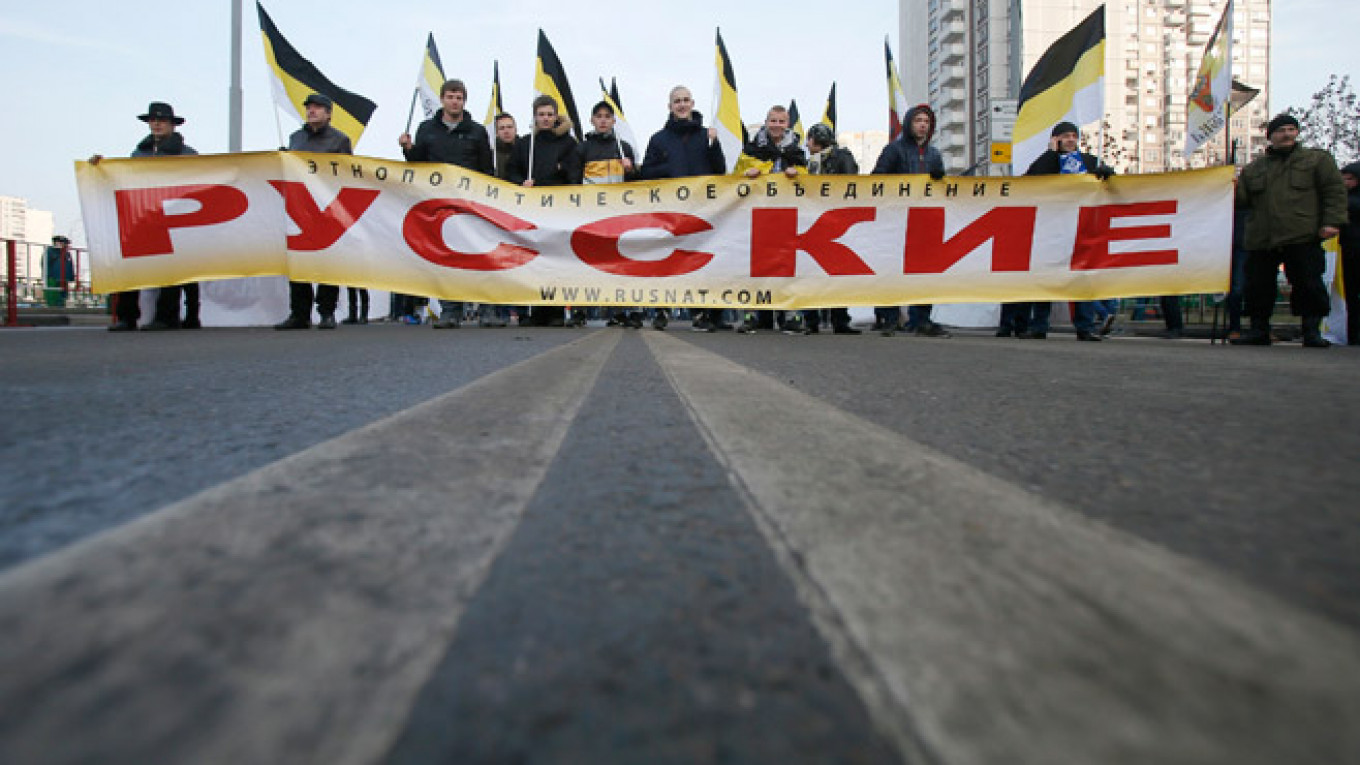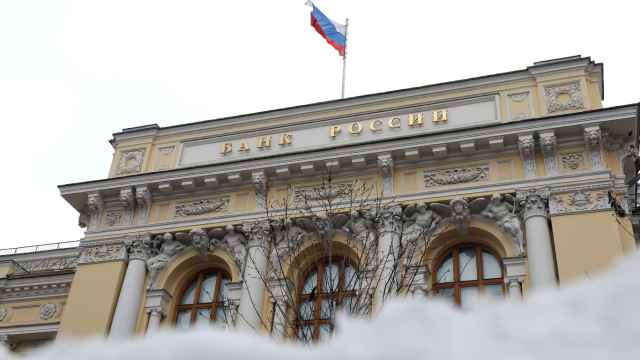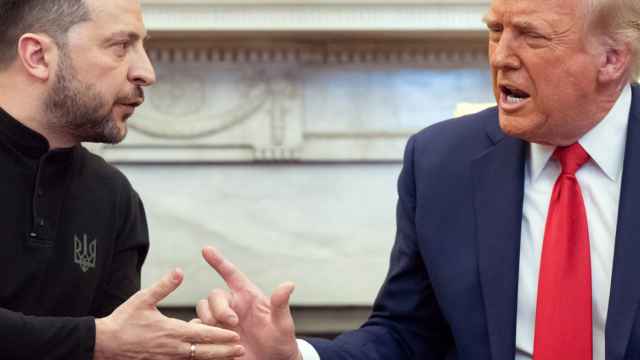The Declaration of Russian Identity that the World Russian People's Council proclaimed earlier this month and that Russian Orthodox Patriarch Kirill approved offers further evidence of the incredible success that Russian nationalists have enjoyed. Over the past 20 years they have managed to impose on society the idea that Russians are an endangered people like some minority ethnic group in Siberia.
Even having their own sovereign state — incidentally, the largest in the world — with its centuries of rich history, their own language, their own highly developed and world-renowned literature and their own Orthodox Church and patriarch, these Russians seriously fear that circumstances will strip them of their Russian identity and turn them into something else. At the same time, they overlook the fact that Russians are mercilessly destroying the identities of their closest Slavic neighbors — the Ukrainians and Belarussians.
They believe that the Russian people are on the verge of extinction and that they must unite along ethnic and religious lines.
Soon, not a single major city will remain in Belarus where people speak the Belarussian language. Volunteers in Minsk regularly offer free courses in their native language to somehow slow the universal transition to Russian. The new exarch of the Belarussian Orthodox Church, Metropolitan Pavel, does not speak Belarussian and does not know what others preach in that language. That is a really serious problem. Just imagine that the leader of the Russian Orthodox Church could not speak Russian and spoke only another Slavic language such as Polish. It could never happen, and yet we now see a great many Russians fearing exactly that as if it were a real possibility.
It is simply amazing how modern Russians have no sense of just how enormous a presence they have. Russian is the largest native language in Europe, with 144 million native speakers. That is twice the number of native speakers of French on the planet. According to the World Bank, Russia has the sixth largest economy in the world. By comparison, the Germans have the fifth largest and England has the 10th largest. Do the Germans and English complain about a threat to their identities? Do they fear for their continued survival?
It would seem that such numbers provide ample cause to push the problem of self-identity down to 10th place or so and take up the far more pressing issues of Russia's worsening demographics, educational system and agricultural sector. But no, Russians do not consider those problems important. They are literally dying to have an official document that clearly defines the criteria of "Russian-ness." They urgently need to understand how they differ from their neighbors — those terrible Swedes, Kazakhs and Japanese. Otherwise, they fear, those horrible Swedes, Kazakhs and Japanese will swallow them up and they will cease to be Russians.
These Russians have pushed their nationalism to hysterical levels and now behave like an elephant that has suddenly and inexplicably concluded it is actually a mouse and should behave accordingly — hiding, cowering and trembling.
The Russian nationalist moves through the streets of a Russian city as if in an occupied zone. He literally does not see any Russian faces around him. His faculties, trained under the influence of nationalist texts, are programmed to see only the threatening signs of alien cultures that denigrate his Russian-ness.
Russians have recently begun investing incredible amounts of energy in convincing themselves of their deplorable situation, and even more in unsuccessful attempts to solve their imaginary problems. In their minds — infected as they are with nationalist delusions — Russia is actually a secret British colony with overlords in the MI5, Mossad and CIA. They believe that the Russian people are on the verge of extinction and that they must urgently unite along ethnic and religious lines just like the Jewish people — yet another group that inspires fear and dread in their overwrought imaginations.
The Declaration of Russian Identity is a rare if not entirely unprecedented example of an attempt to mobilize a society to protect its own identity when nothing is even threatening it. Russian nationalists are fighting a desperate battle against chimeras and hoping to enlist as many of their countrymen as possible in what they view as a heroic struggle. Amazingly, they are actually succeeding. Why?
Perhaps it is something of an informational bubble, not unlike the financial bubbles that Wall Street swindlers sometimes create. And like any bubble, the overinflated bubble of Russian nationalism will eventually burst and the Russian people will finally pay proper attention to the country's truly important issues.
Maxim Goryunov is a Moscow-based philosopher.
A Message from The Moscow Times:
Dear readers,
We are facing unprecedented challenges. Russia's Prosecutor General's Office has designated The Moscow Times as an "undesirable" organization, criminalizing our work and putting our staff at risk of prosecution. This follows our earlier unjust labeling as a "foreign agent."
These actions are direct attempts to silence independent journalism in Russia. The authorities claim our work "discredits the decisions of the Russian leadership." We see things differently: we strive to provide accurate, unbiased reporting on Russia.
We, the journalists of The Moscow Times, refuse to be silenced. But to continue our work, we need your help.
Your support, no matter how small, makes a world of difference. If you can, please support us monthly starting from just $2. It's quick to set up, and every contribution makes a significant impact.
By supporting The Moscow Times, you're defending open, independent journalism in the face of repression. Thank you for standing with us.
Remind me later.






